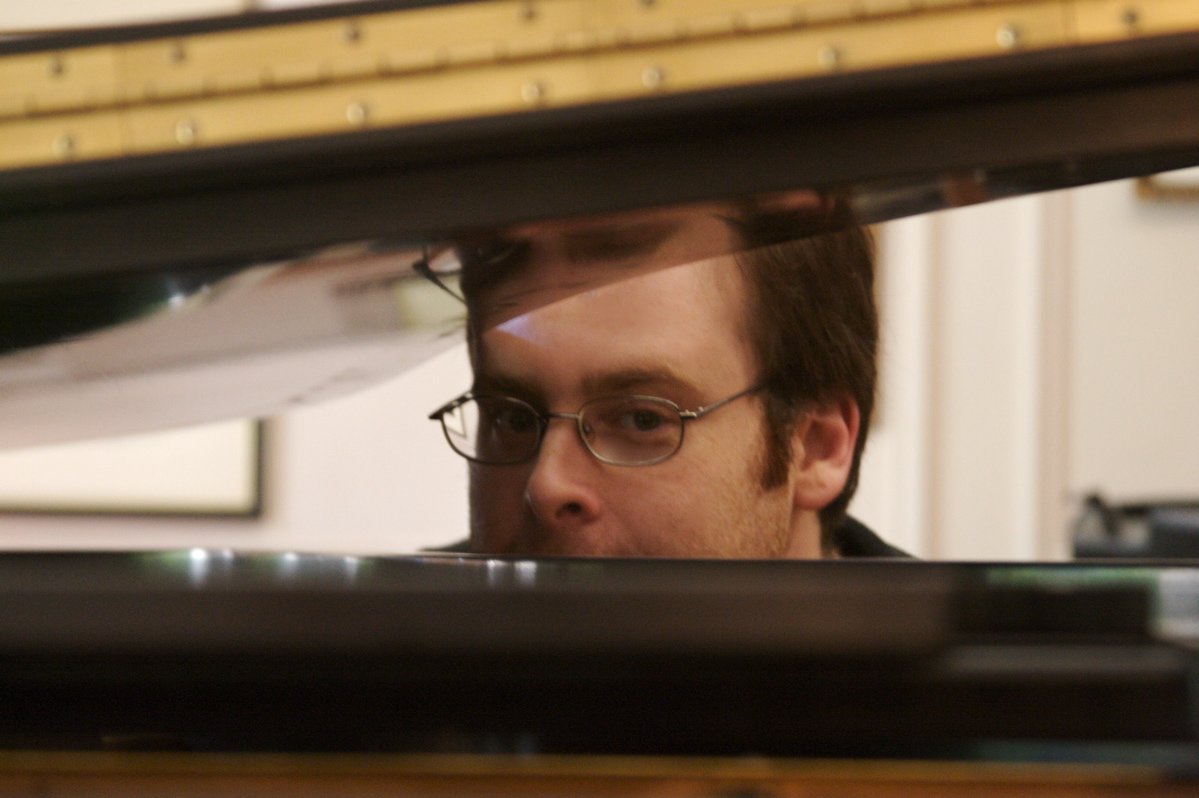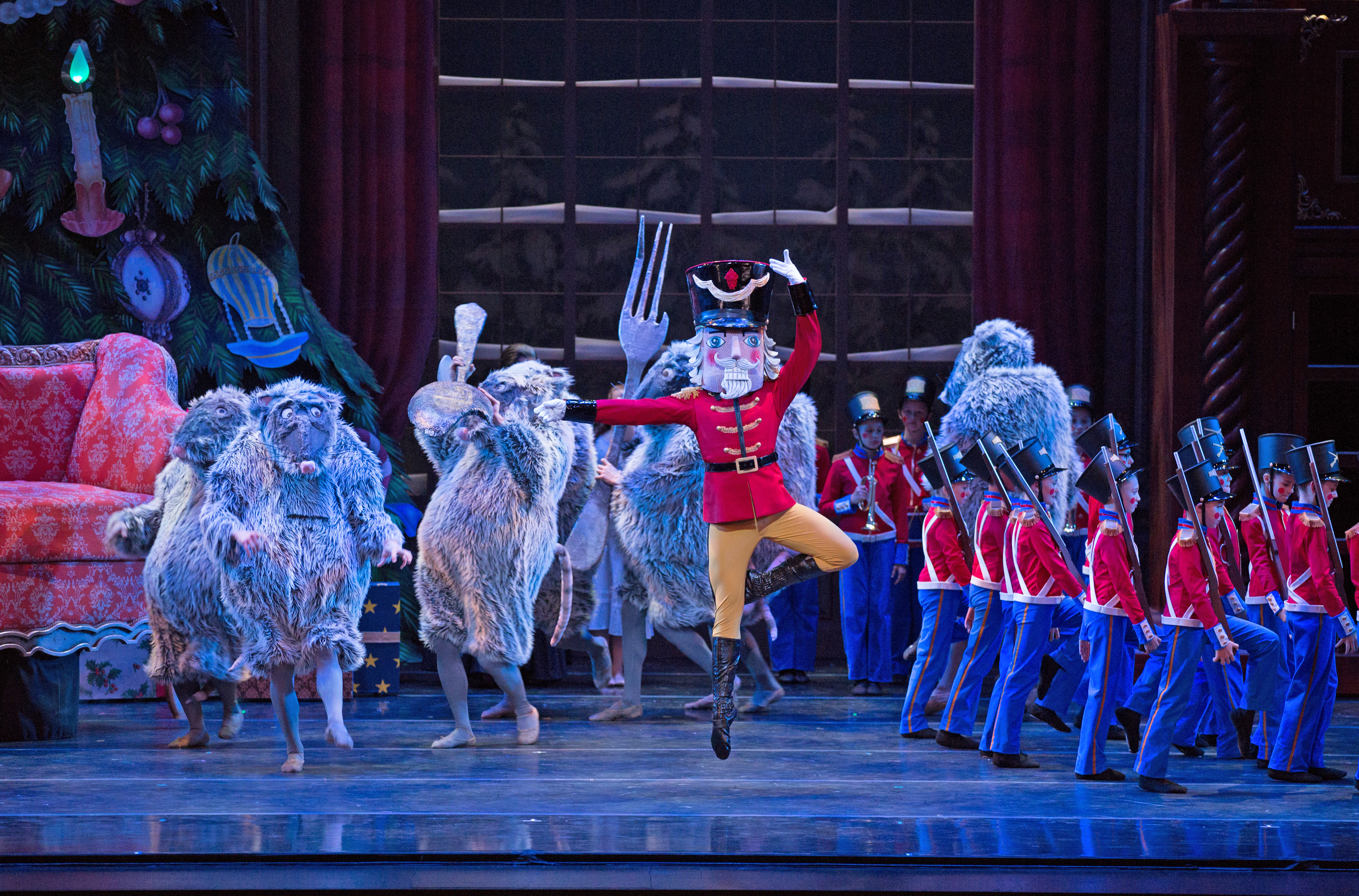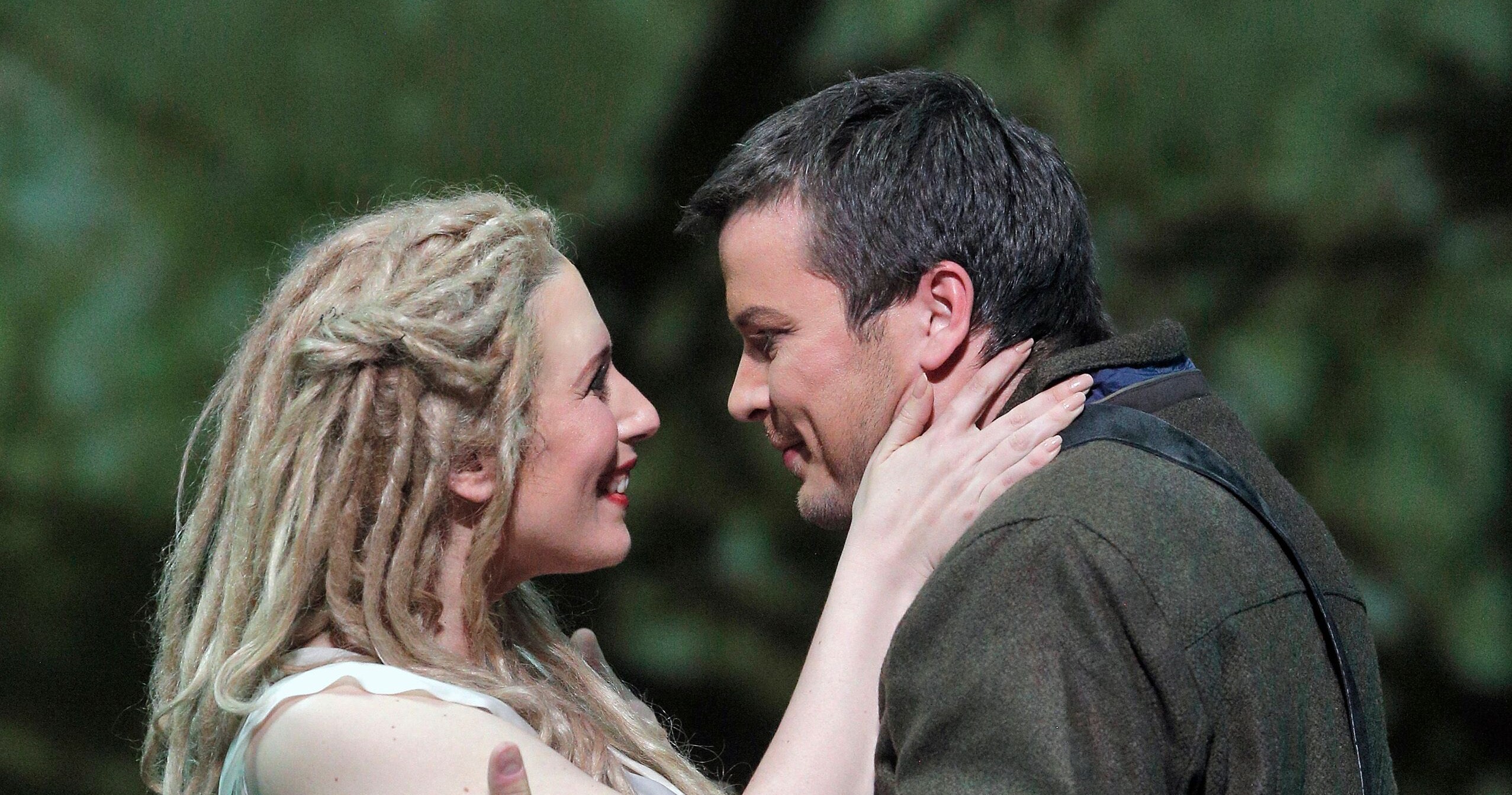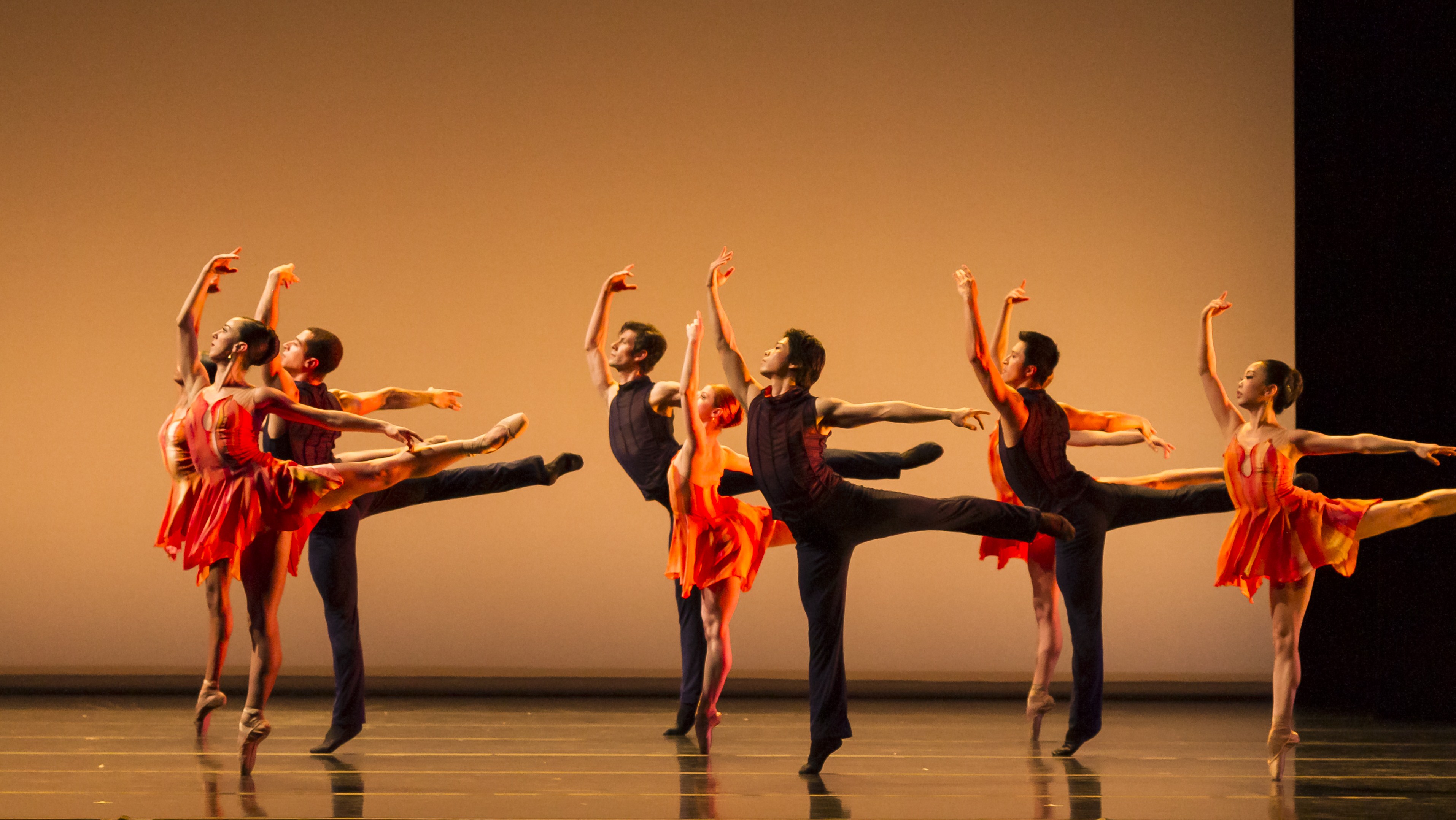IN REVIEW: Nevsky Redux – Symphony, mezzo-soprano, impress with noisy Prokofiev classic
The Alexander Nevsky Cantata is a big, raucous masterpiece, one of Prokofiev’s most richly detailed compositions and an orchestral tour de force to boot. The Kansas City Symphony’s performance of it on May 20th did not stint on theatrics, and the orchestra rose to the virtuosic challenge, with Michael Stern’s natural affinity for Russian music on full display. From the rich string tone and wan English horn solo in the first movement to the tuba-and-percussion roars of “The Battle on the Ice,” this wasNevsky on steroids, with the brass and winds strutting their full capacities and the huge percussion battery filling the Lyric Theater with bright, incandescent explosions of sound. Mezzo-soprano Sasha Cooke was the ideal soloist for the “Field of the Dead” movement, which she sang with warm, plumy tones, a knack for long melodic lines, and Russian diction like that of a native speaker. The Symphony Chorus, as coached by Charles Bruffy, was able to give their part its full range, from the doleful cry of the Russian people to the heroic, soldierly qualities of “Arise, Ye Russian People.” If some of the score (the “Battle” in particular) seems episodic and loosely structured, it is because the music was originally written for Sergei Eisenstein’s classic film of the same title, and thus it is literally “cinematic” in its unfolding. But it makes for a wildly colorful concert score, and the audience responded warmly.
Sasha’s soulful voice was also on marvelous display in the opening work on the program, Brahms’ Alto Rhapsody, which she sang with sensitivity and dark pathos. Her voice is unique, earthy in its lower range and downright muscular in its midrange, with a dusky caramel color that reminds me of some of the great mezzos of the past. The men of the Symphony Chorus responded warmly to Michael’s skillful crafting of the score, making their radiant entrance (“Ist auf deinem Psalter”) into a moving moment.
The program continued with Beethoven’s First Symphony, a piece with which Michael clearly has a special understanding. (He conducted it from memory.) From the nicely shaped opening chords, the first movement was taut and crisp, imbued with breathless energy. The use of a generous string complement, including six double basses, gave the score a richness that it sometimes lacks in more “correct” early-instrument performances. The Andante Cantabile had a freshness and innocence and clarity of thought, even if it might have benefitted from a bit more agogic variance. Timpanist Tim Jepson was on full display in the Menuetto, and the winds were tight and controlled. Some string flubs marred the tricky opening to the finale, but Michael brought the piece to an aptly bracing conclusion.
Features

By Paul Horsley David Ludwig knows better than to attach a “back-story” to a piece irrevocably, although he has openly stated that his new Violin Concerto was inspired by his…

By Paul Horsley Each production of The Nutcracker is to some extent a balancing act between spectacle and dance. At best it seamlessly integrates the colors and stagecraft that keep…

By Paul Horsley The Lyric Opera of Kansas City deserves applause for taking on an opera in Czech for the first time in its history, but the opening performance of…






